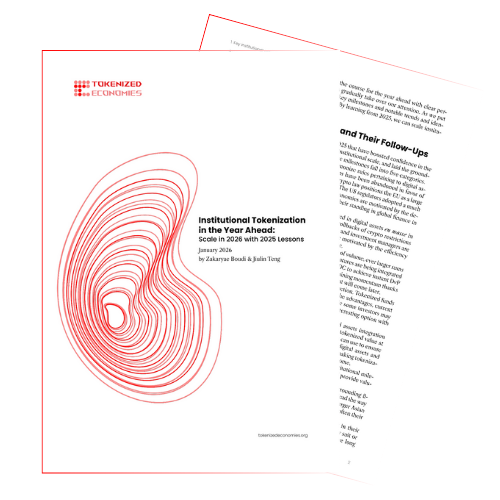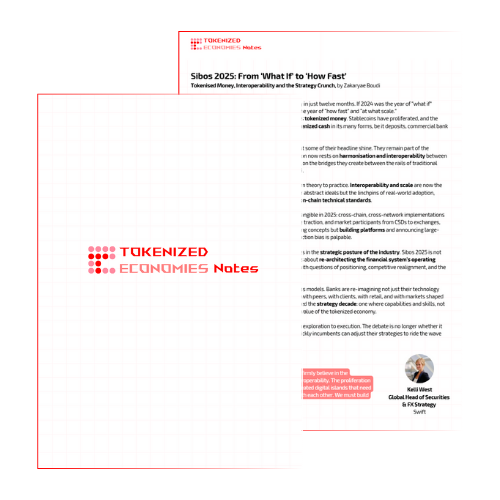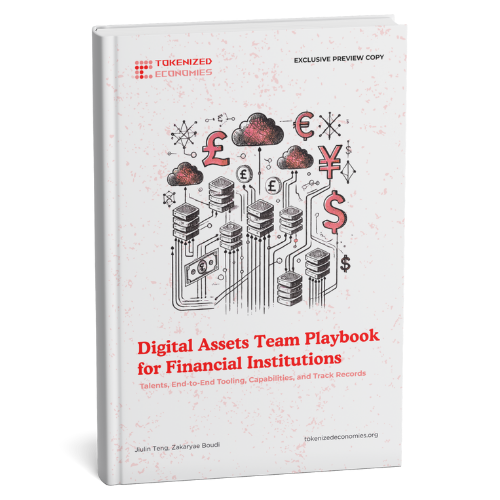DebLeb Finance: The Decentralized Banking Protocol for Lebanon (working paper)

DebLeb Finance: Rebuilding Trust through a Decentralized Banking Protocol for Lebanon
In a country where trust in financial institutions has collapsed, can technology lay the foundations for a more resilient future?
In December 2024, the Tokenized Economies Institute published a working paper introducing DebLeb Finance, a decentralized banking protocol built to address Lebanon’s ongoing financial paralysis. More than a technical innovation, DebLeb is a response to institutional failure—and an invitation to reimagine what inclusive, transparent, and programmable finance could look like in fragile economies.
A Protocol Born of Crisis
Lebanon’s economic collapse has left its citizens locked out of their savings, businesses cut off from credit, and banks functionally insolvent. In the absence of a functioning financial system, informal workarounds have filled the void—cash couriers, parallel exchange rates, and opaque lending mechanisms.
But what if an open, regulated, and programmable infrastructure could replace the broken foundations with something both secure and scalable?
This is the core proposition behind DebLeb Finance.
From Infrastructure to Action
At its core, DebLeb is not a financial institution. It is a decentralized financial infrastructure—an onchain protocol that provides core banking functionalities (such as deposits and lending) through smart contracts, governed by a consortium of trusted stakeholders.
Users can choose to self-custody their digital cash tokens or rely on regulated intermediaries. Every transaction is auditable, with governance rules embedded into the system itself. The architecture relies on modular building blocks: credit pools, vaults, tranches, and programmable governance.
The approach merges blockchain innovation with institutional-grade oversight—bridging the gap between decentralization and compliance.
Governance by Design
The protocol is governed by a Governing DAO, seeded with institutional capital and designed to evolve as adoption scales. Through the issuance of a governance token (DBL), the system introduces both voting rights and performance incentives.
The DAO is responsible for managing liquidity reserves, selecting participating cashiers and underwriters, setting risk parameters, and approving software upgrades. It also provides a layer of regulatory adaptability—enabling the protocol to align with future changes in financial regulation or monetary policy.
Enabling Traceable Aid and Microfinance
A key use case explored in the paper is the deployment of DebLeb to channel international aid and microfinance capital. With billions pledged to Lebanon by donors and IFIs, the lack of a trusted financial rail remains a critical bottleneck.
By enabling traceable, conditional, and tamper-proof disbursement mechanisms, DebLeb opens the door for aid and impact capital to flow safely into the country—particularly toward SMEs, cooperatives, and underserved communities.
A Phased Rollout for Real-World Impact
Rather than deploy overnight, DebLeb will be introduced progressively. The initial focus is on piloting microfinance and SME lending in coordination with selected partners and development finance institutions. This will include sandbox testing, community onboarding, audit workflows, and regulatory consultations.
The protocol is spearheaded by DebLabs, with technical contributions from FeverTokens and strategic engagement by TEI. Governance and fieldwork will be co-developed with local actors, ensuring contextual fit.
Laying the Groundwork for Financial Sovereignty
DebLeb is not just a solution for Lebanon. It is a blueprint for how decentralized infrastructure can restore core banking functions in post-crisis environments. It merges the programmability of DeFi with the accountability of regulated finance. And it offers a credible alternative at a time when traditional models have failed.
As we move from paper to pilot, we welcome collaboration with financial institutions, regulators, researchers, and civic actors committed to building a more inclusive and trustworthy financial future.





